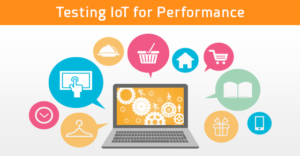In recent years software testing has been in the track they had good past and also improving their techniques in every year. Experts have improved the manufacturing process with the help of waterfall approach to test and increase the product quality. It is a step by step process to check the quality of the product and also test case the product, This process happens when a product is ready to deliver to the user from software testing team. Waterfall approach helps manual testers a lot.
While in software development testing itself is an important stage which helps to find bugs and issues in the software and this helps developers and company to deliver the product on time to the end user. Thus we can say that software testing team has to update on latest testing trends based on the business and entrepreneur requirements. Here we are going to know the top six software testing trends in future to be followed by the testers.
Software Testing Trends Which Transform the Future Prediction

#1. Upgrading From Quality Assurance To Quality Engineering
Time is moving fast with that new technologies are introduced by experts and they became old as time moves. Where the QA follows waterfall approach which is a step by step process to test the product which is a lengthy process. Since QA is very weak from changing dynamically in the test field, As we know it’s a step by step process it needs to complete the previous step to begin the new one and then it moves to the manual tester. To solve this issues QA team members need to upgrade to quality engineer by this they can introduce testing and automation process this can be bought in front of the end user’s acceptance phase.
#2. The Internet Of Things
In this Internet era, IoT(Internet of Things) is the fastest growing technologies and it has been a huge challenge for test automation. When a software and application are connected to the hardware through the internet they both bring a great deal between IoT project and the software tester team(Quality Assurance). It’s not the easy task to establish security preferences and define the exact testing tool.

Source: cigniti
According to a survey, 66%(approximately) of the system which is connected to IoT are harmed to security-related issues. When an IoT product is connected they to tested this requirements reliability, functionality and important is security. Hence, In this, the main issue is network related this is involved in end-user authentication process and web interface. But in the recent time, the not have been focused to increase the security levels which we can the software testers are focusing more time on statics and dynamic testing of the Internet of Things(IoT).
#3. Adopting of DevOps
The main aim of DevOps is to reduce the development(Dev) time to operations(Ops) while providing the quality of software. DevOps need continuous testing, In DevOps, test automation needs to be done at every level. Thus, The main work of software testers is to verify the requirement, integrating the toolset, and creating the automation framework which supports DevOps..etc. DevOps has gained a lot of attention for the different organization, as per the expert survey says most of the organization are interested to adopt DevOps and their principles to increase the performance on automation and integration, Hence more tools are going to be introduced for supporting continuous integrations and automated testing.
#4. Perfect Era for Big Data Testing
If we search for trending topics in recent times we can see Big Data & Cloud Computing at the top of the results page. If we look at testing trends in 2k18 it can rise exponentially on big data testing. Whenever we do big data testing it requires very strong analytic skills, frameworks and along with a unique technique. Big Data testing is the process which helps companies to test the huge amount of data in the database and the main aim is to test the data and keep it as quality as it. If we see the datasets in the big data increases gradually, So that testers need to improve the release data are as faster as datasets increases and deploy them into the market lifecycle. Here are few points how big data testing can be done.
1. Ecosystem Testing
2. Extraction Testing
3. Transform Testing
4. Analytics Testing
5. Functional Testing
#5. Test Automation And API’s
In upcoming days the main aim is to utilize testing automation for focusing on user interface testing(UI). If we look at any organization which is working on API testing and service testing works are done by developers manually. Due to lack of accuracy and time take the experts had introduced and increases the automation APIs along with service testing process. This made independent tester work easier and also bit harder because they are responsible for API and services testing, They are also responsible for helping to save the marketers time while developers are improving the quality of the software.
#6. Open Source Tools Rules the Technologies
In this technology world, most of the organization shows interest to adopt open source services for executing testing management and automation, DevOps techniques, and defect management. The main advantage of adopting the open source tools to the organization is because of free of cost to use and available publically. It gives freedom to every customer so that they can create and integrate a improved test automation as they required. This helps both programmers and non-programmers, Here are some benefits for both programmers and non-programmers:
1. Less time for developing the application
2. Cost of developing the application is Cheap
3. Feature-richness
In this article, we have discussed the Top 6 important testing trends for the Software testers in future.
